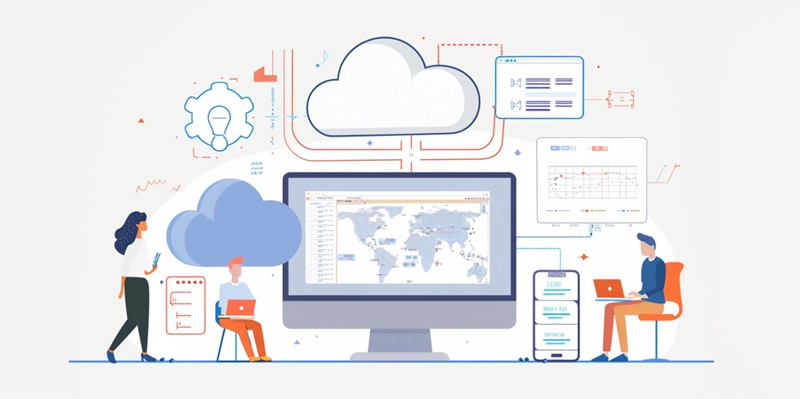In an era where agility and efficiency are paramount, Human Resources (HR) departments are under increasing pressure to overhaul archaic workflows and adapt to a fast-changing business environment. Embarking on a digital transformation journey, particularly through the integration of cloud computing, has become an imperative strategy for forward-thinking HR teams. The cloud facilitates the redesign of traditional HR processes, making them more responsive and data-driven.
Cloud-based HR solutions offer unprecedented access to sophisticated tools, ranging from artificial intelligence (AI) to advanced analytics. The adoption of these tools can considerably reduce the time spent on manual, repetitive tasks, allowing HR professionals to focus on more strategic initiatives that drive organizational growth and employee well-being. This transformation is not just a mere technological upgrade but a strategic reallocation of resources that enables HR to play a more decisive role in shaping the business’s future.
Automate to Innovate: Embracing AI in HR
The integration of AI and automation in HR workflows promises a significant shift in how HR teams operate. Through the use of robotic process automation (RPA) tools, tasks such as payroll, benefits administration, and compliance can be streamlined to a great extent. Automation reduces the margin for error and allows for real-time processing of information, which, in turn, ensures that the organization stays abreast of regulatory changes in a timely manner.
Not only does AI-driven automation handle routine tasks more efficiently, but it also provides crucial insights into workforce trends. Predictive analytics can assist HR in anticipating staffing needs, understanding employee satisfaction levels, and identifying skills gaps within the organization. As a result, HR can become proactive rather than reactive, positioning itself as a key player in organizational planning and decision-making processes.
Centralize to Optimize: Unifying HR Systems
Cloud computing revolutionizes HR by centralizing employee management, uniting all aspects from hiring to retirement. This creates a cohesive, accessible data environment, which streamlines information retrieval and reinforces uniformity and regulatory adherence.
This centralization also revolutionizes new employee integration. With a cloud-based single source for onboarding, newcomers assimilate more effectively into the company culture, armed with all necessary resources. Such a system encourages a sense of community and belonging from the onset, potentially improving job satisfaction and decreasing initial turnover rates.
Ultimately, adopting cloud computing in HR goes beyond technological updates; it’s a strategic move that reshapes HR’s influence in today’s business world. As companies evolve amidst digital change, those with cloud-integrated HR departments are more aptly prepared for future challenges, boasting efficient operations and a ready-to-advance workforce.

